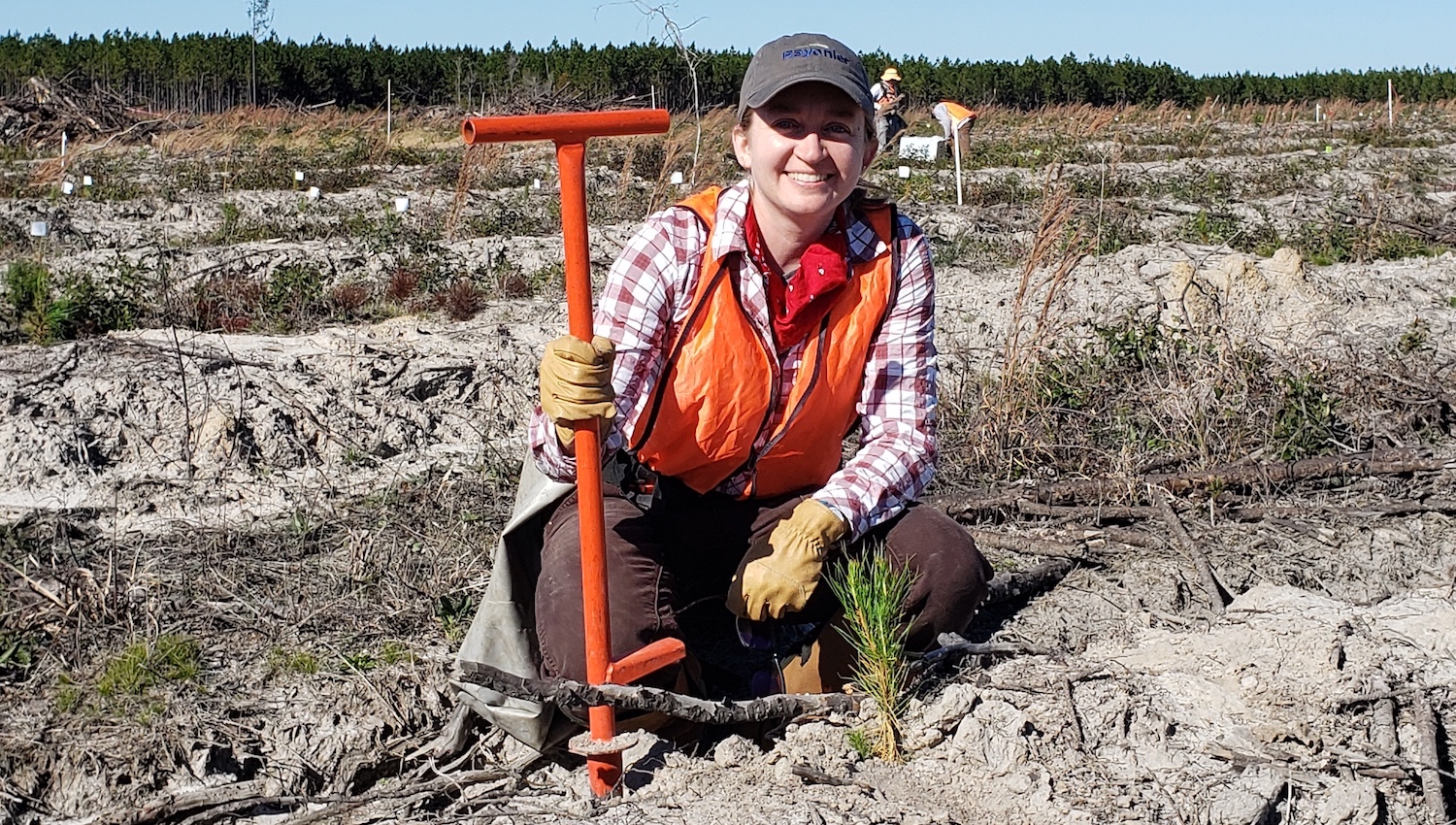Faculty Profile: Rachel Cook

Rachel Cook received her masters and PhD from NC State University in the department of Forestry and Environmental Resources and has a background in soil fertility and nutrient management. After working for about 3 years as faculty at Southern Illinois University in her home state, she returned to NC State in 2016 and is currently an Associate Professor of Silviculture and Forest Soils and Co-Director of the Forest Productivity Cooperative. The FPC is a university-public-private partnership started 50 years ago to better understand site resource management in plantation forestry. The Coop currently has 35 members in the Southeast US and Latin America.
1. What do you study?
I study intensively managed pine plantations and forest soils. Primarily I look at how to manage site resources, particularly nutrition, to grow trees more effectively and efficiently. Understanding what resources will be available to forest plantations requires understanding soils and what limitations need to be alleviated. Soils influence almost all aspects of forest management to maintain sustainability.
2. How did you get in your field?
I grew up on a farm in southern Illinois and was always interested in both biology and managed systems, but didn’t know forestry was something you could actually study until I got to graduate school at NC State. I knew I wanted to do something in research and science related to plants since high school. I worked in several labs throughout college, studied ants in Arizona, soybean cyst nematodes in a greenhouse, and even studied howler monkeys in Nicaragua, but I knew I was in the right place when I came to do my Masters in Natural Resources at NC State. I worked in phytorememdiation and discovered my passion for soils and went on to pursue my PhD in Forestry and Environmental Resources in intensively managed Eucalyptus plantations in Brazil. From there I went to Southern Illinois University to teach and research soil fertility in agricultural systems before returning back to NC State to take my former advisors position and get back to forestry. So I took a pretty winding road to get to where I am, but in the end has worked out perfectly.
3. What is most exciting about your research, and/or what do you hope to achieve with your research?
Since I also am Co-director of the Forest Productivity Cooperative, I get to work directly with forest industry. Through field visits I can stay directly in touch with the current questions that need to be answered and get to share our research results directly to the folks that can implement what we’ve learned into their operations. I hope through our work we can create more sustainable, efficient, and effective solutions in forest management operations. The more effectively we manage production forests, the more forest is left for other purposes such as recreation, and the value we add to the whole region supports local jobs in a renewable and sustainable industry.
4. What led to you becoming a professor at NC State?
After doing my masters and PhD at NC State I knew I wanted to come back here as a professor if I ever had the chance. NC State is a powerhouse of incredibly talented researchers that are also pretty wonderful human beings all trying to make the world a better place. I feel incredibly fortunate to be part of an incredible Department, College, and University. NC State is truly a special place.
5. What was your favorite course to teach?
I teach both Silviculture and Forest Soils. I’d say it’s a tie between the two. They both have a large field component, which I love as you can see the students really putting things together when they get to work in the field.
6. What advice would you give students interested in your field of study?
Get out and explore, get an internship, try new things, network and talk to folks. Life can take you in directions you never expected if you’re open to new possibilities you didn’t even know existed.
- Categories: